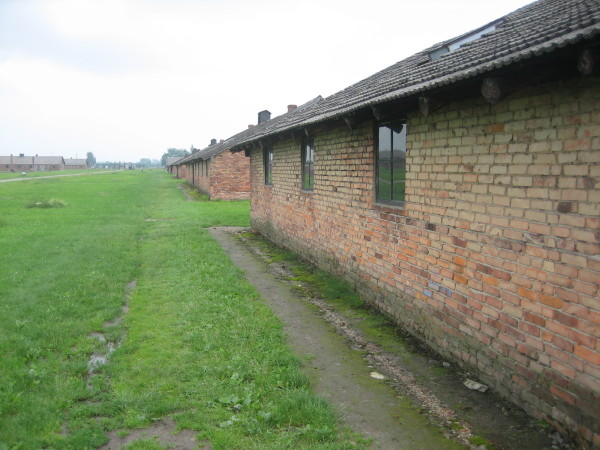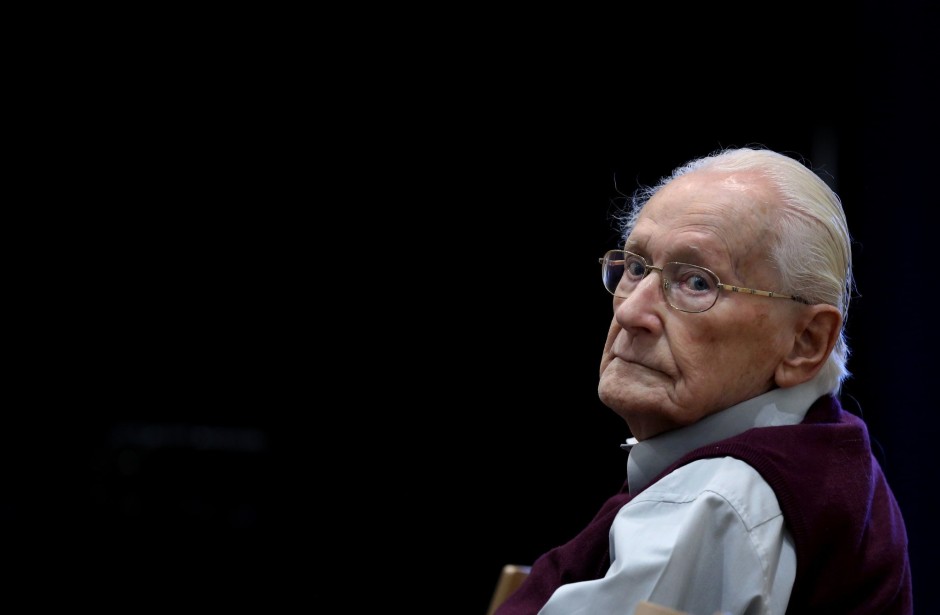In a historic 12-week trial which ended in Germany on July 15, Oskar Groning — a former SS soldier who was posted to the Auschwitz-Birkenau extermination camp from 1942 to 1944 — was convicted of complicity in mass murder and sentenced to four years in prison.
Groning, now 94, was not a major figure in the Holocaust, like Adolf Hitler, Adolf Eichmann, Heinrich Himmler or Hermann Goring. He was a small cog in the machinery of death, not having conceived, planned or implemented the industrial scale killing of Jews.

Groning was responsible for expropriating the cash and valuables of European Jews, particularly Hungarian Jews, who had the misfortune of being transported to this evil place.
A bank teller by training, he was, as the historian Christopher Browning has noted, one of those ordinary Germans caught up in the Nazi takeover of Germany. Neither a Nazi Party member nor an ideological antisemite, he was a nationalist who believed that better days lay ahead for his country under National Socialist rule. And if that meant that Jews would be persecuted and hounded out of Germany, so be it.
Groning did not personally murder a single Jew, like the savage pogromists in Einsatzgruppen mobile units who slaughtered hundreds of thousands of Jews in Eastern Europe after Germany’s invasion and occupation of the Soviet Union in the summer of 1941.
But as a member of the SS — a pillar of the Nazi regime — he was fully apprised of his mission before being being sent off to Auschwitz. Told he would be assigned to a position that would “demand more from you than the front,” Groning knew he would be an integral component in the process euphemistically known as the Final Solution.

Although his job did not require him to participate in atrocities, he was once roused from his sleep to join in a manhunt of fleeing prisoners. After they were captured, he recalled in testimony, he saw them being herded into a building and gassed, their blood-curdling screams growing louder and more desperate.
On another occasion, he said, he found a crying baby in a pile of trash who had presumably been left there by her doomed mother. An SS colleague beat the infant to death, prompting Groning to complain to a superior and ask for a transfer out of Auschwitz.

Imprisoned by the British toward the end of the war, Groning returned to Germany to resume a normal civilian life. Initially loathe to speak about his experiences in Auschwitz, he eventually opened up, denying outlandish revisionist claims that the Holocaust was a hoax.
The Groning trial is historically and morally important because German prosecutors had previously declined to charge anyone as an accessory to murder in the Holocaust. As a result, only 49 of the 6,500 individuals who had worked in Auschwitz were ever convicted of war crimes.
But in the wake of the John Demjanjuk case, there was an attitudinal sea change in the German justice system. In a trial in Munich four years ago, Demjanjuk — a Ukrainian who had been a guard in the Sobibor camp — was charged with involvement in the murder of 28,000 Jews and sentenced to five years in jail. He died a year later.
Due to this landmark precedent, Groning could no longer evade responsibility for his activities in Auschwitz-Birkenau. And interestingly enough, he did not even attempt to do so. On the first day of his trial in Luneburg, the site of one of the first postwar trials of former Auschwitz guards, he addressed the judge, “It is beyond question that I am morally complicit. This moral guilt I acknowledge here, before the victims, with regret and humility. As concerns guilt before the law, you must decide.”
The judge, Franz Kompisch, placed Groning’s complicity in the correct perspective. Groning, he reasoned, had consciously chosen to join the SS. “You had freedom to think,” he said, pointing out he was not forcibly pressed into its service.
Groning thus condemned himself, and now he will pay the price.
